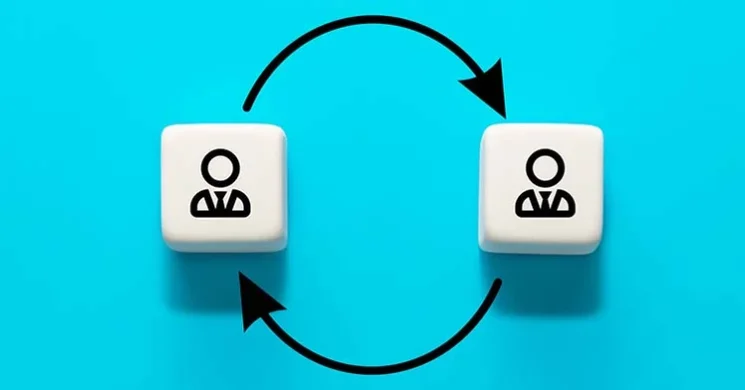Financial planning is vital to preparing for the future, and life insurance is often crucial. It helps protect your family and handle expenses in the case of an unexpected event, providing protection that no other type can match. It’s relatively inexpensive to obtain these days, which makes it attainable to virtually anyone and ensures that you get the coverage you need in case something goes awry throughout your lifetime.
With thoughtful financial planning, life insurance removes some guesswork, so you can rest easy knowing that your loved ones are cared for if a tragedy occurs. Knowing you have provided for your loved ones’ financial security in the event of your absence can be hugely reassuring. This peace of mind grants excellent comfort and is a precious thing to have in life.
It may be hard anticipating a future without one’s presence, but it’s wise to strive for a secure foundation for those remaining, offering them continued trust and reassurance that their facing will be safe.
Being financially secure gives one immense freedom and autonomy to live fully confident about their long-term future. However, there may come a point when selling your life insurance policy makes more sense than holding onto it. Here are five compelling reasons to consider Life Settlements to make this move.
In This Post
1. Financial Need (Fast Liquidity)

If you urgently need cash, selling your life insurance policy can help. Abacus Life Settlements is one of the quickest and surest ways to supplement your balance sheet. You might need sudden access to capital during times like these when many people are dealing with job loss, pending bills, or other pressing priorities that require a quick influx of cash. Plus, if the original purpose behind the life insurance policy no longer exists, it may make sense to sell it to meet expenses that now drive your decision-making.
Life can throw curveballs, unexpected medical bills, sudden job loss, or other unforeseen expenses. In these situations, the lump sum provided by selling the policy can be a lifeline. This is especially true if the policy’s cash value is significantly higher than the surrender value, which is the amount you’d get if you allowed the policy to lapse.
2. High Premiums (Burden of Costly Payments)
Life insurance premiums can be a significant financial strain, arising as you grow older and costs mount. With increasing age comes additional medical issues and higher premiums, shared by many individuals struggling to make ends meet.
In addition to health care costs, life insurance is often seen as an added expense for individuals already stretched thin on their budget. This outlay, which usually increases substantially throughout one’s life, can become heavy lifting when competing with other potentially essential payments. The more years pass, the greater the possibility of premiums taking an even larger bite from within an individual’s finances.
If you’re struggling to make ends meet and the premiums are causing more stress than security, selling the policy might be a sensible option.
3. Change in Beneficiaries (Evolving Family Dynamics)

When you first enrolled in a life insurance policy, your primary intention was likely to protect the ones you love most. You named the people who mean most to you in your policy as beneficiaries, typically including a spouse or children. Providing for them in case of financial hardship is the kindest way to show how much someone truly cares about them.
Knowing they will be taken care of financially can give anyone peace of mind in knowing their loved one’s future is secure even if something unexpected happens.
However, as time passes, these dynamics can change. Children grow up and become financially independent, and spouses pass away. If the original purpose for the death benefits no longer applies, selling your policy and using the funds for other purposes might be a wise decision.
4. The Policy Is No Longer Needed (Change in Finances)
Life insurance is a service many use to ensure their families will have the financial ability to handle specific obligations in the event of death. Standard life insurance underwriting covers mortgage payments and allows children to pursue higher education if necessary.
Additionally, it can assist with debt repayments after someone passes away and offer additional funds to help with any surprises.
But what happens when those obligations are no longer there? If your mortgage is paid off, your children have graduated, and your business debts are settled, you may no longer need the policy.
5. Better Investment Opportunities (Higher Returns)

If your life insurance policy isn’t generating the returns you wanted, it certainly doesn’t have to be the end of your investment journey. It could be an excellent time to look at other options and consider if there might be better investments that give better returns. You may have yet to explore many different alternatives for investments.
Have you considered investing in stocks, bonds, mutual funds, or real estate? Diversifying your current portfolio would give your overall returns a boost. Researching the various possibilities and understanding your risk tolerance can help ensure you select a safe investment option that yields higher.
By selling your policy, you can reinvest the funds into options that offer higher returns and better align with your current financial goals.
6. Reasons To Consider Selling Your Life Insurance Policy – In Summary
While life insurance offers essential protection for loved ones when you pass, there are a few valid reasons to consider selling your policy. It’s not a decision to be made lightly, and it’s always recommended to consult an investor relations advisor to ensure you make the best choice.
Selling your life insurance policy may be a practical step towards that goal. If these reasons sound familiar, selling your life insurance policy is worth considering. Take some time to reconcile the pros and cons of such a move and determine if it would help you achieve the financial stability you crave.